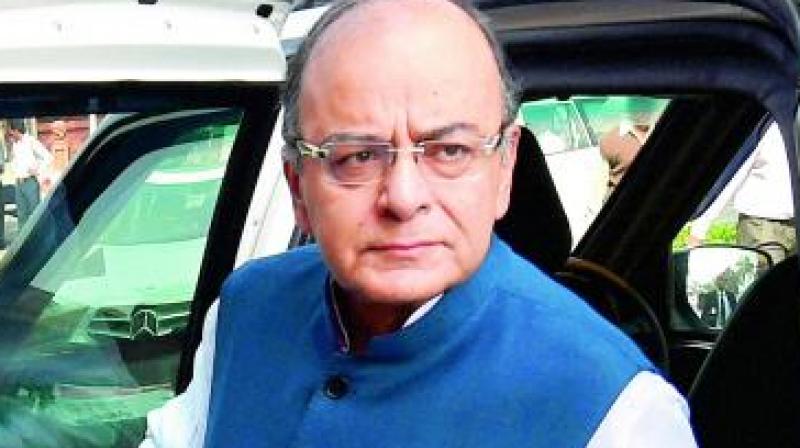Telecom tribunal will now hear airport, cyber issues

New Delhi: The Central government will dissolve eight appellate tribunals including Competition Appellate Tribunal (CAT), Employees Provident Fund Appellate Tribunal and Copyright Board among others through the Finance Bill, 2017.
The Finance Bill also gives the Centre the power to make rules for qualifications, appointments, term of office, salaries, and removal of chairpersons and other members of many Tribunals and Appellate Tribunals.
As per the Finance bill, Competition Appellate Tribunal (CAT) function will be taken over by National Company Law Appellate Tribunal, as per analysis by PRS Legis-lative Research.
Telecom Disputes Settle-ment and Appellate Trib-unal (TDSAT), which deals mainly with telecom issues, will take over two tribunals: Airports Economic Regulatory Aut-hority Appellate Tribunal and Cyber Appellate Tribunal.
The National Highways Tribunal is proposed to be dissolved and its function will be taken over by Airp-ort Appellate Tribunal.
The Copyright Board would also be dissolved and its functions would be taken over by the Intelle-ctual Property Appellate Board.
PRS said the rationale behind replacing certain tribunals is unclear. “TDSAT may not have the expertise to adjudicate matters related to the pricing of airport services. Similarly, it is unclear if the National Company Law Appellate Tribunal, which deals with matters related to company disputes and governance, will have the expertise to deal with matters related to anti-competitive practices, which are currently managed by the Compet-ition Appellate Tribunal,” said PRS legislative Research.
Chairpersons or other members, who are currently occupying posts with Tribunals to be merged, will get up to three months pay and allowances for premature termination. Officers and other authorities of Tribunals that will cease to exist after the merger will stand reverted to their parent cadre, ministry or department.
The amendment also proposes to give the Centre the power to make rules for qualifications, appointments, term of office, salaries, and remo-val of chairpersons and other members of many Tribunals and Appellate Tribunals.
Currently, terms of service of chairpersons and other members of tribunals, appellate tribunals and other authorities are specified in their respective acts.
“The list of tribunals in this amendment includes several tribunals in which the Central government would be a party to disputes, such as those related to income tax, customs, railways, and admi-nistrative Tribunals, and the armed forces Trib-unal,” said PRS legislative Research.
It said that previously Supreme court had held that Appellate Tribunals have similar powers and functions as that of High Courts, so matters related to appointment and re-appointment and tenure must be free from executive involvement. The amendments state that the Centre will have the power to amend list of tribunals, through a notification. This means a Parl-iamentary nod is not nee-ded to bring other Tribu-nals into this scheme.

